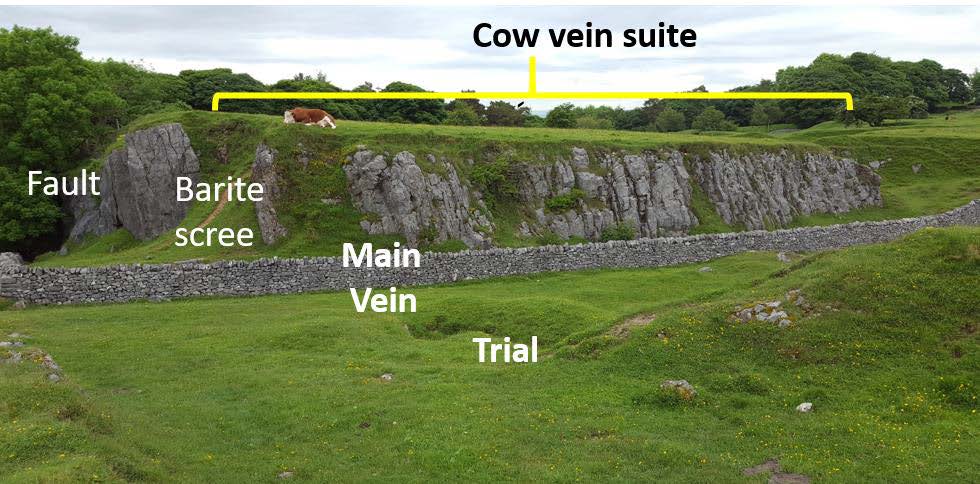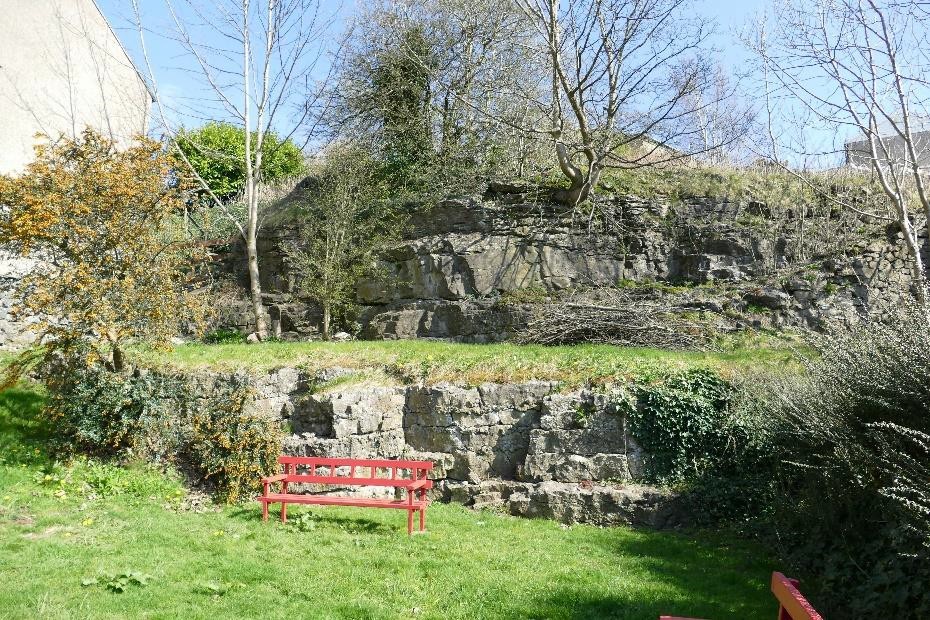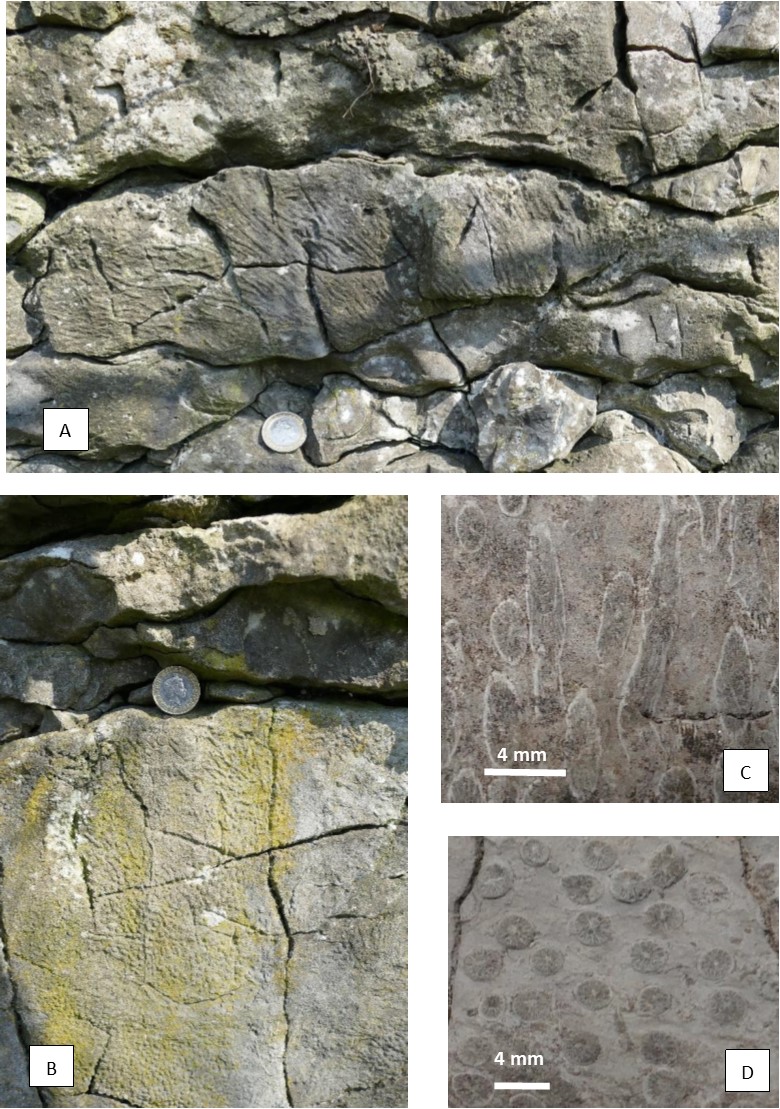News and Events
We love to hear about your experience and see your photographs through the seasons. Don't forget to follow us on Facebook and share our pages. We know we've done a great job when you've had a fantastic day out!
The Geology of Grinlow
Professor Richard Pattrick discusses the geology of Grinlow and the surrounding areas in his paper titled "Grinlow Vein Mineralisation." To read the paper please click on the link below.

Outcrop of Bee Low Limestone containing calcite-barite veins and vein brecias (the Cow Vein Suite) on Grinlow Hill. Photo Professor R Pattrick
Natural Heritage of Buxton: Geology
Professor Richard Pattrick on Fairfield Road's Carboniferous Corals
An outcrop of limestone on the east side of Farfield Road, Buxton (Fig 1) displays an excellent example of Carboniferous corals. The outcrop at [53°15'40.56"N 1°54'19.55"W] is a 3m vertical section, 25m long, set back 20m from the road.
The rock is the Eyam Limestone, of the Late Brigantian sub-stage (CX)(P2) of the Visean, Mississippinian stage of the Carboniferous. It is a dark grey limestone with distinctive chert bands (BGS Lexicon, 2019).
The coral is Siphonodendron junceum (Aretz and Nudds, 2005) – Order: Rugosa; Family: Lithostrotionidae. It is a reef build up, colonial rugose coral. This coral is displayed in transverse and cross sections of large (40cm) colonial masses (Fig. 2).
The importance of the site is that it is an excellent example of a colonial coral, easily seen over a long stretch of outcrop.
References.
M. Aretz and J. Nudds. 2005. The coral fauna of the Holkerian/Asbian boundary stratotype section (Carboniferous) at Little Asby Scar (Cumbria, England) and implications for
boundary. Stratigraphy 2(2):167-190. https://www.bgs.ac.uk/lexicon/lexicon.cfm?pub=EYL

Fig 1 Outcrop of coralliferous, Carboniferous Limestone on the east side of Fairfield Road, Buxton

FIG 2 A & B) Colonial masses of S. junceum C) Oblique section of S. junceum D) Cross section of S. junceum. All Farfield Road site.